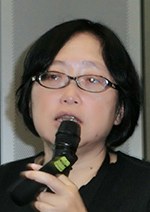 |
| Chang-Ling Huang |
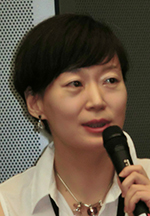 |
| Ki-young Shin |
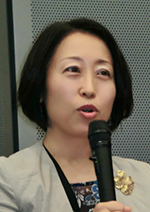 |
| Mari Miura |
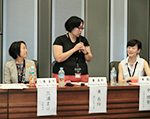 |
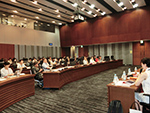 |
The Institute for Gender Studies and GDRep (Research Network on Gender and Diversity in Political Representation) held an in-house public meeting on women’s political participation, titled “Why Does Taiwan Have the Second Most Number of Women Elected in Asia? Reserved Seats and Candidate Quota” on July 30, 2015, in a Special Meeting Room, House of Councilors Diet Members’ Building. Prof. Chang-Ling Huang (National Taiwan Univ.) gave the keynote speech and Prof. Mari Miura (Sophia Univ.) moderated.
The percentage of female members in the current Taiwanese Legislative Yuan (Taiwan has a unicameral legislature) amounts to 33.6 percent, the second highest number in Asia. Behind this high percentage of female legislative members in Taiwan lies the implementation of gender quota. The most prominent characteristic of the Taiwanese quota system is that it is stipulated in the constitution. This system was introduced after the start of democratic elections in 1992. Since the revision of the constitution, Taiwan adopted a mixed electoral system with single member districts and party list proportional representation. The parliamentary seats were reduced from 225 to 113 seats, 73 seats for single-member constituencies, 34 seats for proportional representation, and six seats for indigenous people. 50 percent of the seats in proportional representation are reserved for women.
In local elections, the “One Fourth Quota System” is adopted. This means that if a party obtains four seats or more, at least one seat must be taken by a woman. Government committees also adopted gender quota for the committee members. Quotas are applied to the gender with less seats, be it either male or female. At the end, Prof. Huang also spoke of the selection of a female candidate for the presidential election in Taiwan and concluded that it is now completely normal for women to hold important positions in Taiwanese politics.
After the talk, Prof. Ki-young Shin (IGS, Ochanomizu Univ.) made comments on what Japan could learn from Taiwan from the perspective of Japanese politics. She mentioned the importance of taking advantage of the political “window of opportunity” in order to introduce a quota system in Japan, and the role that women’s movements play in such times. In that process, Prof. Shin also argued that the role of the opposition parties is critical, and that political culture can change as a result of the adoption of new institutions, not vice versa.
During the Q&A session, many questions were raised by the audience, such as the difference in implementing the quota system at a national level and at a local level in Taiwan and the quota system regarding indigenous people. At the end of the meeting, Masaharu Nakagawa (current member of the House of Representatives) promised, as a representative of the Executive Member of the Parliamentary Group for the Promotion of Women’s Participation and Empowerment in the Field of Politics, that he would try his best to promote a gender quota system in the Japanese Diet.
Prof. Huang concluded that while it is common to ask the “merit” of having more women in the Diet, they must also ask, “what is the merit of male Diet members?” and the quota system is not for “merit,” but for realizing gender equality. During the entire meeting, Prof. Huang’s energetic speech left a strong impression, leading to the active discussion with the audience.

